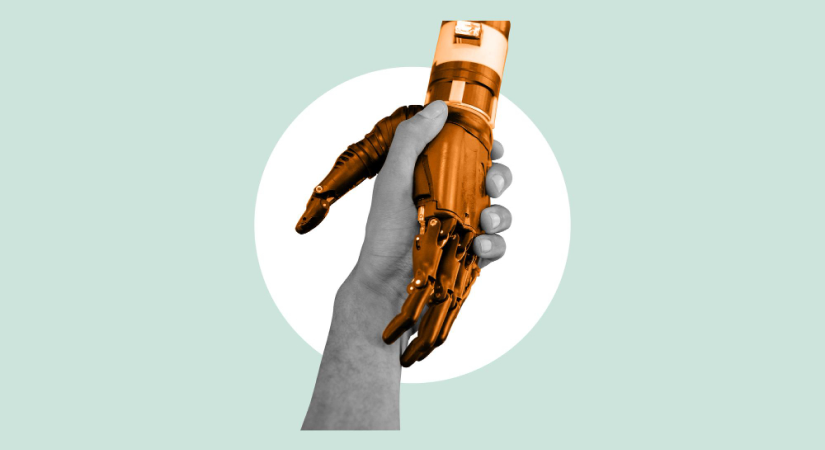by Dr. Sushmitha Sundar
6 minutes
Why One-Size-Fits-All Healthcare Is Failing India—and How AI Can Fix It?
AI-powered personalized medicine can transform Indian healthcare by bridging genetics, behavior, and culture.

In India, healthcare often begins with a waiting room crowded with people from every walk of life—urban professionals, farmers from nearby villages, elderly patients accompanied by their families. They all carry different diets, lifestyles, stresses, and cultural practices, yet most receive the same “standard” line of treatment.
For Sushmita Sundar, a healthcare strategist and advocate for AI-driven innovation, this picture highlights the urgent need for change. Personalized medicine, she argues, must go beyond decoding genes to truly reflect the Indian reality—where behavior, environment, and socioeconomic factors often shape outcomes more than genetics alone. In an interview, she unpacks why a “one-size-fits-all” model no longer works and how AI can help India build a more equitable, context-aware, and human-centered healthcare system. Read further to delve into her insights.
“When we talk about AI-driven personalized medicine in India, I see it as much more than just decoding genes. To me, it means delivering the right treatment to the right person at the right time, based on their unique characteristics. But in India, these characteristics are shaped by far more than genetics—they are influenced by behavior, environment, culture, and socioeconomic realities.” - Dr. Sundar.
Personalized Medicine in the Indian Context
At its core, personalization in healthcare is about understanding the person behind the patient. In India, achieving this requires a multidimensional approach that extends beyond genomics.
Genomic Data: For conditions like cancer, rare diseases, or pharmacogenomics, genetic insights are invaluable. However, access to genetic testing remains limited, particularly outside metro cities, restricting its widespread application.
Local Behaviors and Lifestyle Patterns: Lifestyle factors play an equally critical role. Dietary habits—whether vegetarian, non-vegetarian, or carbohydrate-heavy—environmental exposures such as air and water quality, stress differences between urban and rural living, and even something as basic as completing a course of antibiotics significantly shape health outcomes. For chronic conditions like diabetes or hypertension, behavioral data often proves more influential than genetic data.
Socioeconomic and Cultural Determinants: Personalization in India must also reflect the nation’s diversity in language, health literacy, and affordability. For instance, a diabetes app may need to provide home remedies alongside standard treatment or offer teleconsultations in regional languages to ensure adherence.
Digital Biomarkers and Clinical Data: While Tier-1 hospitals may have electronic health records (EHRs), AI-driven healthcare models in other regions often rely on wearables, patient-reported data via mobile apps, or information gathered from public health programs.
The question arises: is personalization about genes or behavior? In India, it is both. However, the current tilt is toward behavioral, environmental, and socioeconomic determinants, with genomics slowly beginning to influence care in select conditions. Ultimately, AI in Indian healthcare must remain context-aware, resource-sensitive, and population-diverse.
Why the “One-Size-Fits-All” Model Fails in India
In most public hospitals, treatment continues to follow a “one-size-fits-most” approach. But in a country as complex as India, this model is not just outdated—it can be harmful.
- Poor Outcomes: Populations respond differently to the same drug or dosage. For example, South Asians are more prone to insulin resistance at lower BMI levels, yet many treatment protocols still rely on Western BMI cut-offs.
- Wasted Resources: Uniform treatment methods often result in trial-and-error approaches, leading to repeated hospital visits, prolonged stays, and higher costs for both patients and the healthcare system.
- Missed Diagnoses: Standard screening criteria frequently overlook at-risk groups. Western cardiovascular models, for example, underestimate risks for younger Indian patients, particularly women.
- Health Inequities: Rural and tribal communities face compounded disadvantages: lack of access to quality care and protocols that fail to reflect their unique determinants, such as nutrition or exposure to infectious diseases.
- Lost Prevention Opportunities: AI-driven personalization has the potential to identify risks of pre-diabetes, pre-hypertension, or genetic cancers earlier. Uniform models cannot deliver this level of foresight.
- Drug Inefficacy and Side Effects: Pharmacogenomics shows that some Indian subpopulations metabolize drugs differently. Without personalization, the risks of treatment failure or adverse effects increase.
If India continues to rely on generic, population-blind approaches, the consequences will be clear: rising illness rates, escalating healthcare costs, widening health disparities, and missed opportunities for preventive care.
The Way Forward
For India, personalized medicine is not a luxury—it is a necessity. With a massive disease burden and limited healthcare resources, the country cannot afford the inefficiencies of uniform care.
The future of healthcare in India will not replicate the West’s genomics-heavy model. Instead, it will evolve into a hybrid approach—where AI bridges genetic insights with behavioral, environmental, and cultural understanding. This integrated model represents the real opportunity: building a healthcare system that is technologically advanced yet deeply human-centered.
India has a unique chance to lead this transformation. By developing a context-aware, affordable, and equitable personalization model, the country can set an example for the world—one that reflects both its challenges and its potential.
Comment your thoughts
Ram Balani
Great article Dr. Sundar and to the point. Are you attending Virtue Insight Dec 11th event on Biosimilars by chance? Am attending at Khinoor Hotel-Mumbai.
4 months ago




